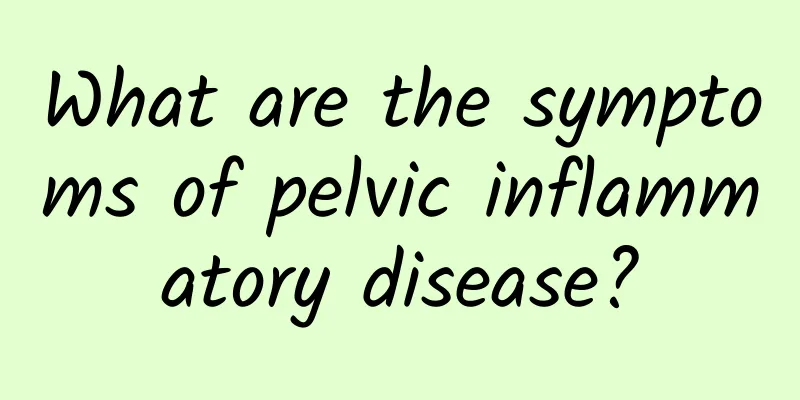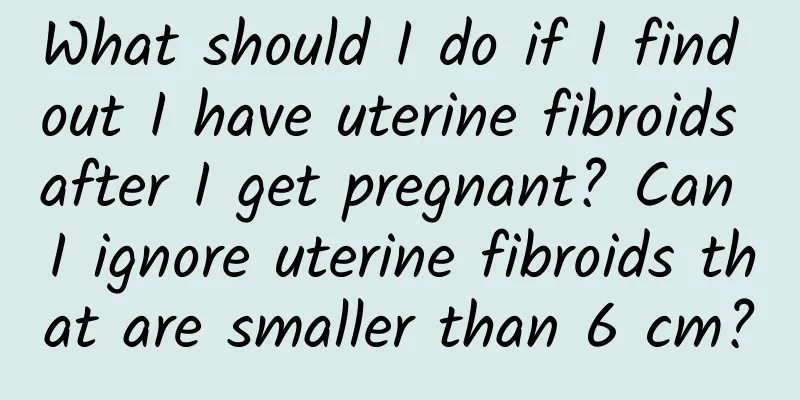What are the symptoms of pelvic inflammatory disease?

|
What are the symptoms of pelvic inflammatory disease? Pelvic inflammatory disease can be acute or chronic, and the symptoms of the two are slightly different. Acute pelvic inflammatory disease can cause systemic fever, lower abdominal pain that refuses to be pressed, but is also accompanied by a large amount of leucorrhea, which may be purulent in nature. Some systemic symptoms may also occur, such as general fatigue, back pain, and menstrual disorders. For patients with severe conditions, there may be obvious high fever, loss of appetite, chills, headaches, etc. Patients with peritonitis may also experience digestive system symptoms such as nausea, vomiting, and abdominal distension. Chronic pelvic inflammatory disease can also cause some abnormal symptoms. Although they are not as obvious as acute pelvic inflammatory disease, you can find them by careful observation. Generally, chronic pelvic inflammatory disease can cause menstrual disorders, such as menorrhagia, oligomenorrhea, or amenorrhea. Due to the influence of pelvic inflammation and adhesions, it can also cause varying degrees of increased leucorrhea, waist and abdominal pain, or lower abdominal pain. If pelvic inflammation forms chronic adnexitis, it will come into contact with the mass. If it is not treated for a long time, it will also lead to infertility. Generally speaking, the systemic symptoms of chronic pelvic inflammatory disease are not obvious. Sometimes there will be symptoms such as fever, night sweats, fatigue, loss of appetite or weight loss. Some patients will have a fever during menstruation and are prone to fatigue. If the course of chronic pelvic inflammatory disease is long, symptoms of neurasthenia may also occur. The symptoms of chronic pelvic inflammation and acute pelvic inflammation are different. Women should usually pay attention to observation. Once symptoms of chronic or acute pelvic inflammation are found, timely examination and treatment should be carried out to prevent the disease from worsening and having a greater impact on their own health. Pelvic inflammation can be cured after treatment, and patients should pay attention to symptomatic treatment. |
<<: My period came last month but not this month. What's going on?
>>: What are the clinical symptoms of uterine fibroids?
Recommend
Will I get cancer after having an abortion for a hydatidiform mole?
Abortion of hydatidiform mole does not necessaril...
Is surgery for cervical erosion harmful to the body?
Surgery for cervical erosion generally does not c...
What are the methods for regulating menopause? An old Chinese doctor will teach you
There are also many methods of TCM conditioning f...
When is the ovulation period after abortion? What are the symptoms of the first ovulation after abortion?
When is the ovulation period after abortion? Symp...
Love cold drinks and ice cream, be careful not to develop a "water drop" body
■ Where is fat The lower body is swollen and fat,...
Ultrasound diagnosis of congenital absence of vagina
Congenital absence of vagina is the result of bil...
What does pelvic effusion mean, is it a disease, and can it be cured?
Pelvic effusion is usually a physical sign, not a...
What are the causes of irregular menstruation?
Irregular menstruation refers to abnormalities in...
Drinking soy milk before meals is more effective in losing weight and burning fat
How to diet to lose weight? The editor below will...
What to do if your menstruation is not stable
What to do if your menstruation is irregular? Irr...
How harmful is ectopic pregnancy to women?
How harmful is ectopic pregnancy to women? Whethe...
What harm will abortion bring to female friends?
With the progress of society, abortion has become...
The best slimming peppers! Chili peppers and peppers can burn fat
Spicy chili peppers and fragrant peppers not only...
What causes female cervical hypertrophy?
Cervical hypertrophy has a great impact on women&...
Patients with pelvic inflammatory disease should pay attention to the hygiene of underwear
Pelvic inflammatory disease refers to inflammatio...









